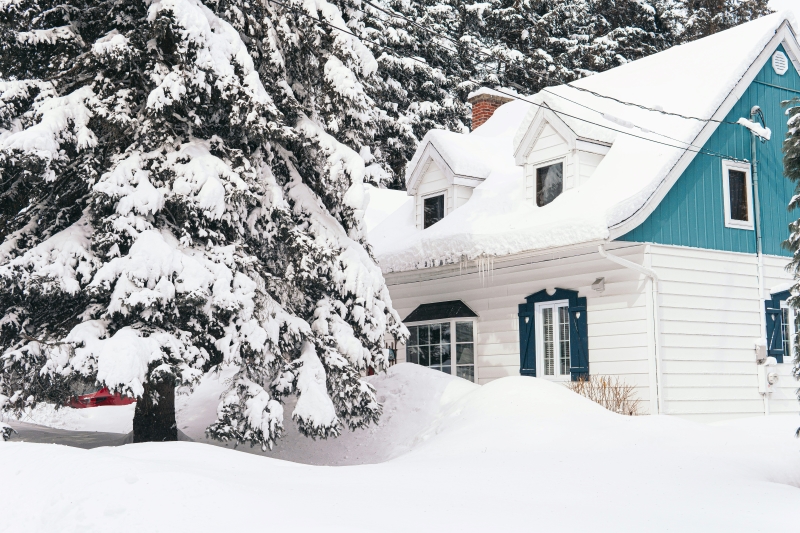
As the temperature drops and the days shorten, the threat of severe winter storms becomes more pronounced. As full-service water, fire, and mold cleanup and restoration specialists, we at Paul Davis Restoration of Boise understand the havoc that winter storms can wreak on your home and peace of mind. That’s why we’re here to guide you through preparing for these challenges.
Our extensive experience in wind & storm damage repair, water damage restoration, and emergency response services places us in a unique position to offer you invaluable advice. Let’s dive into how you can safeguard your home and loved ones from the wrath of winter storms.
Understand the Risks
First things first, recognizing the potential dangers of winter storms is crucial. These can range from heavy snowfall and ice accumulation to dangerously low temperatures and strong winds. Such conditions not only pose risks to your personal safety but can also lead to significant property damage, including frozen pipes, roof collapses, and flooding due to rapid snowmelt.
Essential Preparations Before the Storm
- Insulate Your Home: To keep the cold at bay, ensure your home is well-insulated. This includes sealing drafts around doors and windows, insulating water pipes to prevent freezing, and checking your home’s attic, basement, and exterior walls for adequate insulation.
- Emergency Kit: Assemble an emergency kit that includes necessities such as water, non-perishable food, flashlights, batteries, a first-aid kit, medications, and warm clothing. It’s better to be over-prepared than underprepared.
- Roof and Gutter Check: Make sure your roof is in good condition to handle the extra weight of snow and ice. Clean out your gutters and downspouts to ensure they’re not blocked by debris, which can lead to ice damming and potential water damage to your home.
- Create a Communication Plan: Have a plan in place to stay in touch with family members in case you’re not together when a storm hits. This includes agreeing on a meeting place and having important contacts written down, as reliance on digital devices can be precarious if power is lost.
- Stay Informed: Keep an eye on the weather forecast and be aware of any winter storm watches or warnings issued for your area. Understanding the difference between a watch and a warning can help you gauge the severity of the storm and your response to it.
During the Storm
- Stay Indoors: This might seem like a no-brainer, but it’s worth emphasizing. Avoid going outside unless absolutely necessary, as conditions can deteriorate rapidly.
- Maintain Heat: Keep your home at a consistent temperature to prevent pipes from freezing. If you use a fireplace or space heater, ensure they are used safely and never left unattended.
- Emergency Numbers: Keep a list of emergency contact numbers, including Paul Davis Restoration, handy in case you need quick access to emergency response services.
After the Storm
- Inspect for Damage: Once it’s safe, inspect your property for any signs of damage. This includes checking for water leaks, structural damage, or downed power lines.
- Report and Document: If you find damage, document it with photos and contact us at Paul Davis Restoration for a comprehensive damage assessment and restoration plan.
Staying Ahead of the Storm
Preparation is key when it comes to dealing with severe winter storms. By taking proactive steps to protect your home and family, you can mitigate the risks associated with these seasonal challenges. Remember, Paul Davis Restoration of Boise is here to help with wind & storm damage repair, water damage restoration, and emergency response services. Don’t hesitate to reach out to us for assistance or advice.
Related Questions
How can I prevent pipes from freezing during a winter storm?
Insulate your pipes, keep your home heated to at least 55°F, and let faucets drip slightly to prevent pressure build-up from freezing.
What should be included in a home emergency kit?
Water, non-perishable food, batteries, flashlights, a first-aid kit, medications, and warm clothing are essentials.
How can I safely use a generator during a power outage?
Always operate generators outdoors, away from windows and doors to prevent carbon monoxide poisoning. Follow the manufacturer’s instructions for setup and use.
Who should I contact if I discover storm damage to my home?
Document the damage and contact Paul Davis Restoration of Boise for a professional assessment and restoration services. We’re here 24/7 to support you through recovery.
